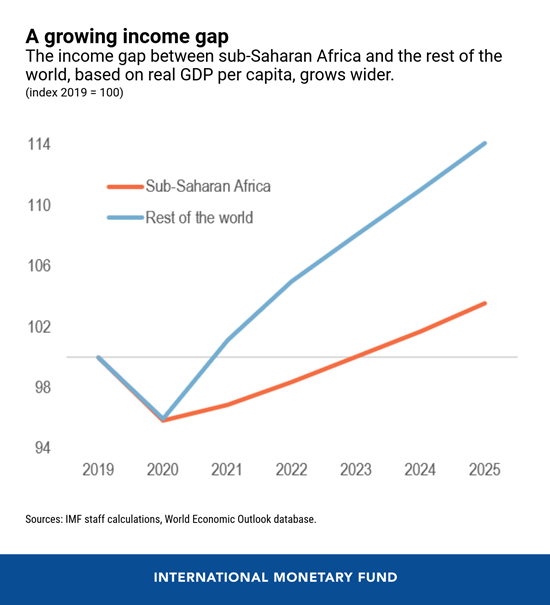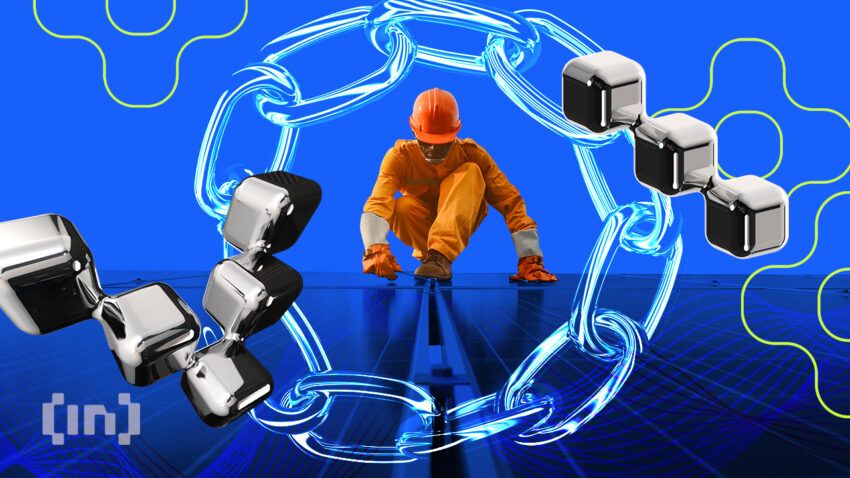Cardano’s African ambitions: revolutionary finance

To which the world directs its attention new opportunities for digital technology, blockchain platform Cardano hopes to make inroads in the quest for change in Africa. But the challenges are many.
Cardano aims to help transform a continent’s economic landscape. In this article, we will dive into how this blockchain platform aims to reshape Africa’s economy, unlocking opportunities for growth and prosperity through strategic partnerships and innovative solutions.
Blockchain for a brighter future
Cardano, an ambitious blockchain platform, has ventured into Africa with multiple goals. Leveraging partnerships in identity management, supply chain tracking and financial inclusion, it hopes to revolutionize the continent’s financial systems. These solutions have undoubtedly shown promise, giving African nations new opportunities for growth.
A new era of identity management
Identity management stands as a crucial aspect of Cardano’s African endeavours. With many people lacking official identification, economic exclusion runs rampant.
The Cardano blockchain aims to tackle this problem by developing secure, decentralized digital IDs. Millions can thus gain access to important services, including banking and education.
Transparency in the supply chain
In addition, Cardano is working hard on supply chain tracking. Fragmented supply chains often hamper African industry, leading to inefficiency and corruption. Using blockchain technology, Cardano hopes to provide transparent, tamper-proof solutions that enable businesses to track products from origin to destination. This increased visibility promotes ethical practices and strengthens consumer confidence.
Financial Inclusion: A Game Changer for Economic Growth
Furthermore, Cardano’s commitment to financial inclusion is transformative, offering the chance to reshape Africa’s financial landscape. Expanding access to financial services for unbanked populations promotes economic growth, reduces poverty and opens doors to new opportunities.
Through blockchain-based solutions, Cardano hopes to enable secure transactions, simplify transfers and provide affordable credit, ultimately empowering millions across the continent.

Secure Transactions: A Foundation for Trust
Security is a cornerstone of financial inclusion. Cardano’s blockchain technology can provide a secure environment for transactions, creating trust in the financial system. By using cryptography and decentralized networks, Cardano ensures that transactions are tamper-proof, minimizes the risk of fraud and builds trust among users.
Facilitating Remittances: Bridging the Gap
Furthermore, remittances play an important role in Africa’s economy, with millions of people dependent on remittances from abroad. Traditional remittance channels are often slow and expensive, burdening both senders and recipients.
Cardano’s blockchain solutions can help streamline this process, offering faster and cheaper options for cross-border transfers. By reducing transaction fees and waiting times, Cardano can help maximize the impact of transfers on local economies.
Affordable Credit: Unlocking Opportunities
Access to affordable credit is critical to economic growth, as it enables individuals and businesses to invest in the future. In Africa, high interest rates and strict loan requirements often prevent this access.
Cardano’s blockchain technology offers decentralized lending platforms that connect borrowers with lenders directly, bypassing traditional financial intermediaries. This peer-to-peer lending model can lead to more competitive interest rates and flexible loan terms, opening doors for countless entrepreneurs and individuals to realize their dreams.
Digital wallets: financial access at your fingertips
Similarly, Cardano’s digital wallets represent another step towards financial inclusion. These wallets allow users to store, send and receive digital assets, including cryptocurrencies and other blockchain-based tokens.
With the proliferation of smartphones in Africa, digital wallets can bring financial services to even the most remote and underserved communities. By simplifying access to financial tools, Cardano’s digital wallets can play a crucial role in bridging the financial divide.
Addressing concerns about neocolonialism: A deeper dive
Still, Cardano’s African ambitions have not escaped criticism, with some critics arguing that the company’s approach resembles neo-colonialism by imposing Western solutions without understanding local needs.
To counter these claims, Cardano actively engages with African communities and collaborates with local organizations, to ensure that initiatives are tailored to address regional challenges.
An example is Cardano’s collaboration with the Ethiopian Ministry of Education. In close collaboration with government officials and local teachers, Cardano has developed a digital identity system adapted to the Ethiopian context. This system, called Atala PRISM, enables secure tracking of student and teacher performance, providing data to inform policy decisions and improve the quality of education.
With regard to community engagement, Cardano has prioritized working with local stakeholders. In Tanzania, for example, Cardano has partnered with World Mobile, a mobile network provider, to extend affordable internet access to rural communities. This partnership not only improves connectivity, but also facilitates the adoption of Cardano’s blockchain solutions. By engaging directly with end users and involving them in decision-making, Cardano ensures that its initiatives are relevant and impactful.
Challenges to Cardano in Africa
Despite the excitement surrounding Cardano’s African initiatives, some argue that the projects lack transparency and accountability, making it difficult to evaluate their true impact. There is concern about possible misuse of funds and resources, and that the projects may not be adequately monitored.
In addition, centralization concerns have arisen, with some suggesting that Cardano’s initiative could lead to dependence on the Cardano Foundation and IOHK, the organizations that run these projects.
The long-term benefits of these initiatives have also been examined, as their success depends on the widespread adoption of Cardano’s technology. Skeptics claim that it is uncertain whether the technology will gain traction, and if not, these projects may fail. Technological barriers, such as limited internet access and low levels of digital literacy in many African countries, fuel this doubt.
Another criticism of Cardano’s African initiatives is the resistance they may face from existing financial institutions in Africa. Some argue that these institutions may see the blockchain-based projects as a threat to their established business. Other critics argue that Cardano’s approach resembles neo-colonialism by imposing Western solutions without understanding local needs.
Leverage innovation
The potential for blockchain technology to revolutionize Africa’s economic systems cannot be overstated. With its capacity for decentralization, security and transparency, blockchain presents a unique solution to meet the continent’s challenges.
Cardano’s African ambitions showcase the transformative power of this technology and invite further exploration. In addition, blockchain can solve Africa’s land registration problems by providing a transparent, tamper-proof record of land ownership. As a result, this will not only reduce corruption and disputes, but also facilitate access to credit, as land can be used as collateral.
In Ghana, the government is exploring the use of blockchain for land administration, and Cardano’s expertise in the field could prove valuable.
Also, blockchain technology can help tackle Africa’s energy challenges. Decentralized energy grids, enabled by blockchain, can offer a more reliable, efficient and cost-effective energy supply. Cardano’s blockchain framework can facilitate the creation of such networks, empowering communities to generate and manage their own energy resources.

Navigating the path to development
Can Western companies like Cardano really understand the complexities of African societies and promote lasting change? Balancing profit motives with real development goals is a delicate task, and it is important to strike a balance.
Cardano’s African ambitions offer a glimpse into a future where blockchain technology is shaping the continent’s financial landscape. While challenges remain, the platform’s commitment to partnership and community engagement demonstrates a willingness to learn and adapt.
The power of collaboration
Cardano’s African ventures aim to showcase the potential of blockchain to revolutionize financial systems. By engaging with local communities, Cardano hopes to contribute to a more inclusive, transparent and prosperous future for Africa. But questions and challenges persist.
Ultimately, the success of these endeavors may depend on effective collaboration and a thorough understanding of the continent’s unique challenges. It remains to be seen whether Cardano’s African ambitions can truly transform the region’s economic landscape.
Disclaimer
In accordance with Trust Project guidelines, this feature article presents the opinions and perspectives of industry experts or individuals. BeInCrypto is dedicated to transparent reporting, but the views expressed in this article do not necessarily reflect the views of BeInCrypto or its employees. Readers should verify information independently and consult with a professional before making decisions based on this content.

























